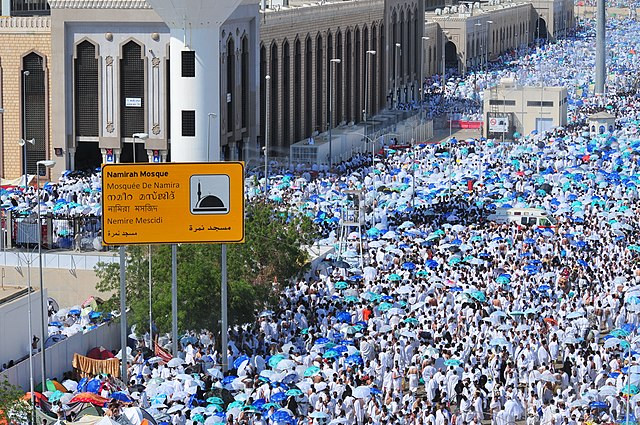Hundreds of Hajj pilgrims have died and thousands have been treated for heatstroke as Mecca experiences extreme temperatures of up to 51 degrees Celsius (124 degrees Fahrenheit). The deadly heat wave has affected one of the world's largest religious gatherings, drawing attention to the severe conditions facing worshippers during this year's Hajj.
CNN Indonesia reported that 165 Indonesians are among the deceased, while authorities have confirmed the deaths of at least 41 Jordanians, 35 Tunisians, and 11 Iranians. The Iranian Red Crescent also reported that 26 Iranians have been hospitalized, with some deaths attributed to underlying conditions exacerbated by the heat.
The official death toll is expected to rise as Saudi Arabia and Egypt have not yet released comprehensive figures. The governments have only accounted for registered pilgrims, leading to fears that unregistered individuals may also be among the deceased. Social media has seen a surge of posts from people searching for unaccounted loved ones, adding to the distress.
The Saudi government announced that more than 2,700 people have been treated for heatstroke. Amid these harsh conditions, authorities advised pilgrims to avoid performing the "stoning of the devil" ritual during peak heat hours and urged them to carry umbrellas and stay hydrated. The Saudi army has deployed over 1,600 personnel with medical units and 30 rapid response teams to manage heatstroke cases, supported by 5,000 health and first aid volunteers.
This year's Hajj, which sees over 1.8 million participants, is taking place during one of the hottest months in the Islamic calendar, leading to a significant increase in heat-related illnesses and fatalities. While deaths among pilgrims are not uncommon-over 200 were recorded last year-the extreme temperatures this season have exacerbated the situation.
The Hajj pilgrimage, one of the five pillars of Islam, requires every Muslim who is physically and financially able to make the journey to Mecca at least once in their lifetime. The rituals include wearing a special garment that symbolizes equality and unity before God, a counter-clockwise procession around the Kaaba, and the symbolic stoning of evil.
For Saudi Arabia, the Hajj is not only a religious obligation but also a source of national pride and economic revenue. The kingdom's king holds the title of Custodian of the Two Holy Mosques, highlighting the significance of overseeing the pilgrimage. Since King Salman bin Abdulaziz took power in 2015, Saudi Arabia has invested heavily in expanding the Grand Mosque in Mecca to accommodate more worshippers, reflecting the pilgrimage's importance to the nation's economy.
Although oil sales generate significant revenue for Saudi Arabia, the Hajj and Umrah pilgrimages represent a growing economic sector. With an aim to diversify the economy by 2030, the Saudi government has targeted increasing the number of pilgrims to 30 million annually. The economic potential of the pilgrimage is substantial, with revenues forecasted to average about $30 billion a year and create 100,000 jobs for Saudis.
The impact of climate change on the Hajj is becoming increasingly evident. Rising temperatures pose a growing threat to pilgrims, a concern that has been echoed by climate scientists. Heat-related deaths during the Hajj are not new, with records dating back to the 1400s, but the intensity of recent heat waves underscores the need for enhanced safety measures.
Egyptian authorities have reported that at least 530 Egyptians have died, with another 31 missing. Many of those who died were not formally registered for the event, limiting their access to essential facilities such as tents. A Reuters witness described seeing thousands of pilgrims exposed to the sun during the climb to Mount Arafat, an integral part of the pilgrimage, with bodies of deceased pilgrims later covered with Ihram cloth until medical personnel could arrive.
The extreme heat has prompted cooperation between the Egyptian foreign ministry and Saudi officials to track down missing individuals and address the casualties. The toll from this year's Hajj highlights the urgent need for strategies to mitigate the risks posed by increasingly harsh weather conditions.




